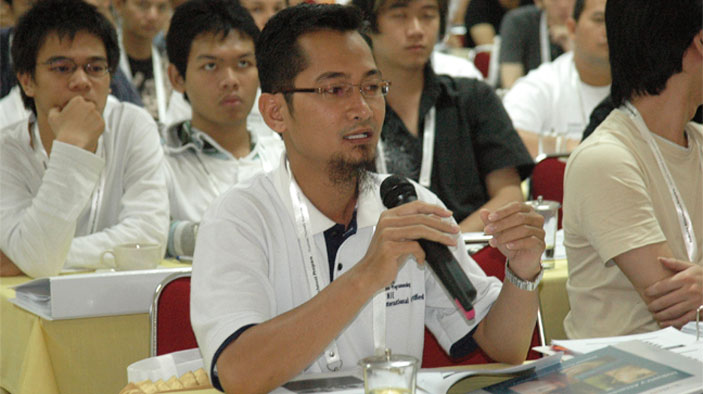Indonesia—SENADA Indonesia Competitiveness Program
Client: U.S. Agency for International Development
Duration: 2005-2009
Region: Asia and the Pacific
Country: Indonesia
Solutions: Economic Growth
SENADA, a four-year project financed by the U.S. Agency for International Development (USAID), generated growth, jobs, and income by increasing the competitiveness of Indonesia’s labor-intensive manufacturing industries, including footwear, furniture, garments, auto parts, and information and communications technology. Having a thorough understanding of the actors and dynamics throughout a value chain—from input suppliers to final retail customers—is critical to bringing about growth and change. SENADA’s industry value chain approach focused on enterprises while incorporating the institutions and services integral to selected industries. National, provincial, and local governments; universities; financial, business service, and technology providers; and other supporting institutions worked side-by-side with SENADA and Indonesian enterprises to improve productivity.

Sample Activities
- Examine and document the mechanics of the relationships between actors in select industry value chains.
- Prioritize critical systemic constraints and opportunities within value chains and design and implement activities to improve the way these industries function.
- Identify firms with high potential and commitment to growth and provide them with strategic planning support and technical assistance in finance, production, quality improvement, and marketing.
Select Results
- Increased employment opportunities and enhanced productivity across five industry value chains (furniture, auto parts, garments, home furnishings, and footwear) and one service industry (information and communications technology).
- Increased sales by helping firms develop or strengthen domestic and international market opportunities. Notable gains in export sales were achieved in furniture and home furnishings.
- Supported innovations in industry products and services throughout all five value chains, resulting in greater market acceptance locally and internationally.
- Increased and sustained involvement by stakeholders (producer associations, international brands, and government counterparts) in industry strengthening and business enabling activities.
- Created and implemented a RegMAP tool that enabled regulatory mapping and analysis.
- Accelerated business licensing. For example, the program resulted in a total of 916 business licenses obtained during a six-month period in Sidoarjo Regency—a dramatic increase in the normal six-month average of licenses approved (378).
RELATED CONTENT:
Tanzania—Feed the Future Tanzania Advancing Youth
The Feed the Future Tanzania Advancing Youth activity helped young people ages 15 to 29 in Tanzania to enhance their employability, business savvy, leadership skills, and participation in civic life.
Read More